When Iran and the P5+1 signed a deal over Tehran’s nuclear program last July, members of Congress, Middle East analysts, and Arab Gulf governments all warned that the agreement would prompt Iran’s rivals in the region to race for the bomb.
In a report that Bob Einhorn and I released this week, we assessed this risk of a so-called proliferation cascade. We look at four states in particular—Saudi Arabia, the United Arab Emirates, Egypt, and Turkey—and Bob briefly explores each case in another blog post out today. In the paper, we argue that although the likelihood of a proliferation cascade in the Middle East is fairly low, and certainly lower than a number of critics of the Iran deal would have you believe, it is not zero. Given that, here are eight steps that leaders in Washington should take to head off that possibility:
- Ensure that the JCPOA is rigorously monitored, strictly enforced, and faithfully implemented;
- Strengthen U.S. intelligence collection on Iranian proliferation-related activities and intelligence-sharing on those activities with key partners;
- Deter a future Iranian decision to produce nuclear weapons;
- Seek to incorporate key monitoring and verification provisions of the JCPOA into routine IAEA safeguards as applied elsewhere in the Middle East and in the global nonproliferation regime;
- Pursue U.S. civil nuclear cooperation with Middle East governments on terms that are realistic and serve U.S. nonproliferation interests;
- Promote regional arrangements that restrain fuel cycle developments and build confidence in the peaceful use of regional nuclear programs;
- Strengthen security assurances to U.S. partners in the Middle East; and
- Promote a stable regional security environment.
Taken together, these steps deal with three core challenges the United States faces in shoring up the nonproliferation regime in the region.
The first is that the central test of nonproliferation in the Middle East will come from how the JCPOA is believed to be meeting its core objective of preventing Iranian nuclear weapons development and Iranian establishment of regional hegemony. It cannot be stressed enough that the decision to pursue nuclear weapons by any state, including those in the region, starts with a sense of vulnerability to core security threats and an inability to address those threats through any other means. The history of nuclear proliferation is one of tit-for-tat armament in the face of overriding security imperatives. Both finished and aborted nuclear programs bear the hallmarks of a security dilemma impelling states to make the political, economic, and security investments into nuclear weapons.
This is no less true for countries across the region than for Iran. To the extent that the overall security environment can be stabilized, there will be less impetus for any Middle Eastern state to develop nuclear weapons. The United States should focus on:
- Fully implementing and enforcing all sides of the JCPOA (nuclear restrictions, transparency, and sanctions relief);
- Creating a strong sense of deterrence toward Iran, manifest most clearly in the passage of a standing Authorization to Use Military Force if Iran is determined to be breaking out toward acquisition of a nuclear weapon;
- Providing security assurances and backing them up with the mechanisms to make them actionable like joint exercises, logistical planning, and cooperation with a range of regional and extra-regional actors; and,
- Working to promote a more stable regional environment by seeking the resolution of simmering conflicts.
But, these latter two factors also point to another resonant theme in our research: the need for the United States to be a player. After decades of involvement in the region, the United States has yet to settle upon the right balance between involvement and remove. Yet, establishing this equilibrium is essential. States in the region need predictability in their affairs with the United States, including knowing the degree to which our assurances will stand the test of time.
States in the region need predictability in their affairs with the United States, including knowing the degree to which our assurances will stand the test of time.
In part for this reason, the United States should not only pursue deeper security relationships, but also civil nuclear cooperation with interested states throughout the region. Such a relationship both ensures a closer link between the United States and its partners and discourages the spread of enrichment and reprocessing technology by disincentivizing countries from “going it alone.” In the Middle East, the United States would need to find a formulation that offers some flexibility (such as by building in language that would permit the United States to terminate any nuclear cooperation arrangements in the face of sensitive fuel cycle development by the other side).
The United States should also share intelligence more closely with its partners in the region. This is helpful in the short term, of course, but also helps the United States understand the mindset of and intelligence picture of its regional partners in a broader sense. It also helps leaders in Washington address concerns brought about by unfounded rumors or speculation as to Iran’s intentions or capabilities.
Changing how we do business
Even more important than how the JCPOA was negotiated will be how we transition from its restrictions and transparency mechanisms into a new world in 15 to 20 years.
The United States seek to incorporate elements of the JCPOA into normal international monitoring practices and should negotiate new arrangements to help govern the future development of nuclear technology in the region.
To achieve the former, the IAEA will need to make some changes to how it does business. For example, the IAEA determines how best to implement its monitoring mission, contingent on acceptance by the country being inspected. The United States and its partners should work with the IAEA (and other countries with significant nuclear activities) to make some parts of the JCPOA standard operating practice, such as online monitoring of enrichment levels. Other elements of the JCPOA may require agreements at the IAEA and beyond for how nuclear-related activities, including those that could have value for nuclear weaponization, are handled. It might be hard to get agreement, not least because there is clear language in the JCPOA that states that it will not be seen as a precedent for future nuclear nonproliferation efforts. However, it should still be the ambition of the United States to make such steps part of the norm.
A far more difficult lift would be organizing a regional approach to the nuclear fuel cycle. This is not the same as creating a multilateral fuel cycle, though some elements that approach would be helpful. Rather, the United States should find ways to craft regional agreements or, failing that, moratoria on aspects of the fuel cycle that others in the region would find threatening. It would be easier to negotiate constraints some aspects than others. For example, spent fuel reprocessing is rare in the Middle East, with only Israel having been known to do it to a significant degree. It may therefore be an attractive first place to begin. Enrichment would be altogether more difficult, but it may be possible to convince states in the region to forego the expansion of their enrichment programs beyond their status quo. For Iran, it would continue to possess uranium enrichment but with constraints that limit the utility of this program for weapons production; its incentive would be to avoid creating the rationale for regional competition. For other countries in the region, it would involve holding off on enrichment, but also on the financial and political investment enrichment would involve—as well refraining from creating a security dilemma for Iran that could produce miscalculation in the future.
While some of these recommendations are more challenging (and may prove impossible), others are potentially easier. By taking a multifaceted approach, the United States increases the chances that no further weapons of mass destruction proliferate in the Middle East down the road.
Editors’ Note: Richard Nephew and Bob Einhorn spoke about their new report at a recent Brookings event. You can see the video from the event here.
The Brookings Institution is committed to quality, independence, and impact.
We are supported by a diverse array of funders. In line with our values and policies, each Brookings publication represents the sole views of its author(s).

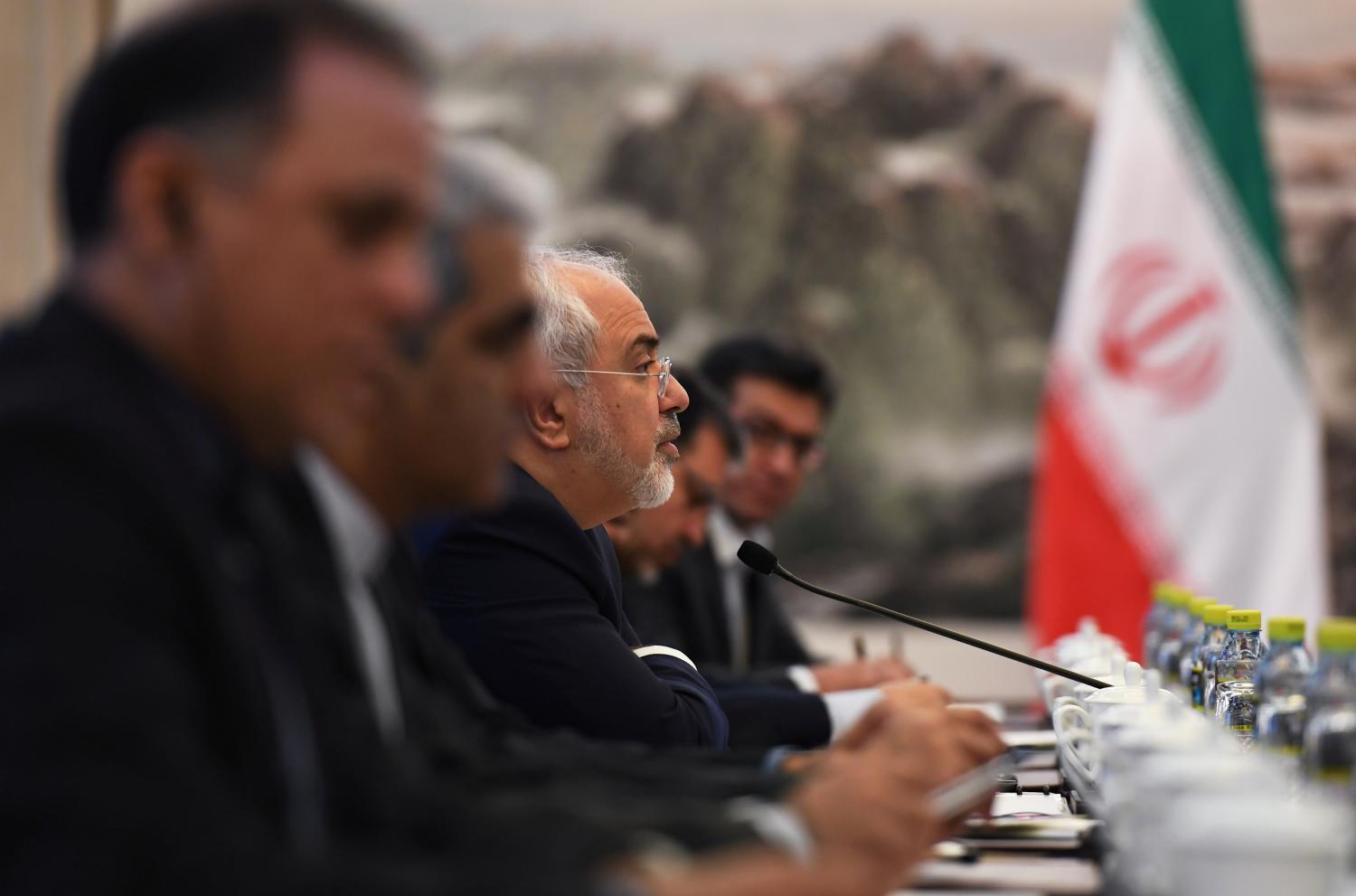
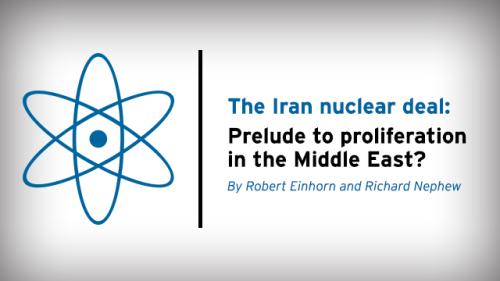
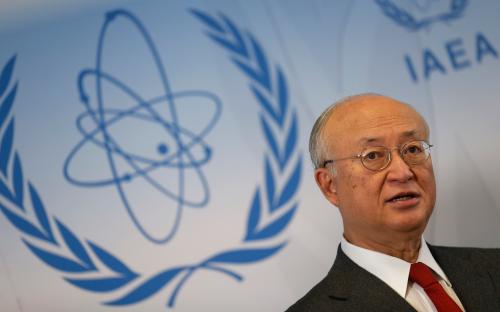
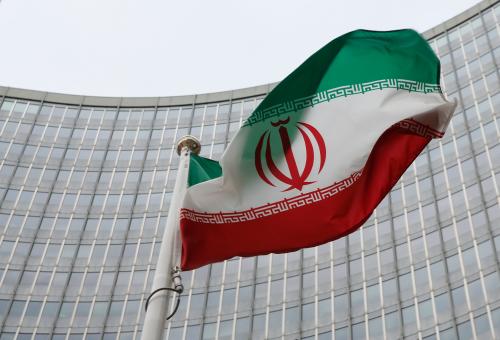
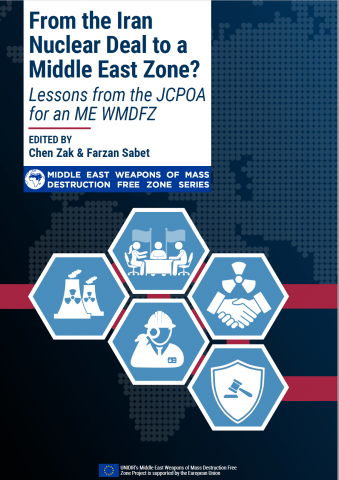

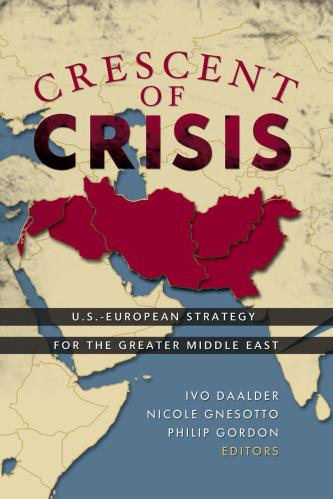




Commentary
What the U.S. can do to guard against a proliferation cascade in the Middle East
June 2, 2016